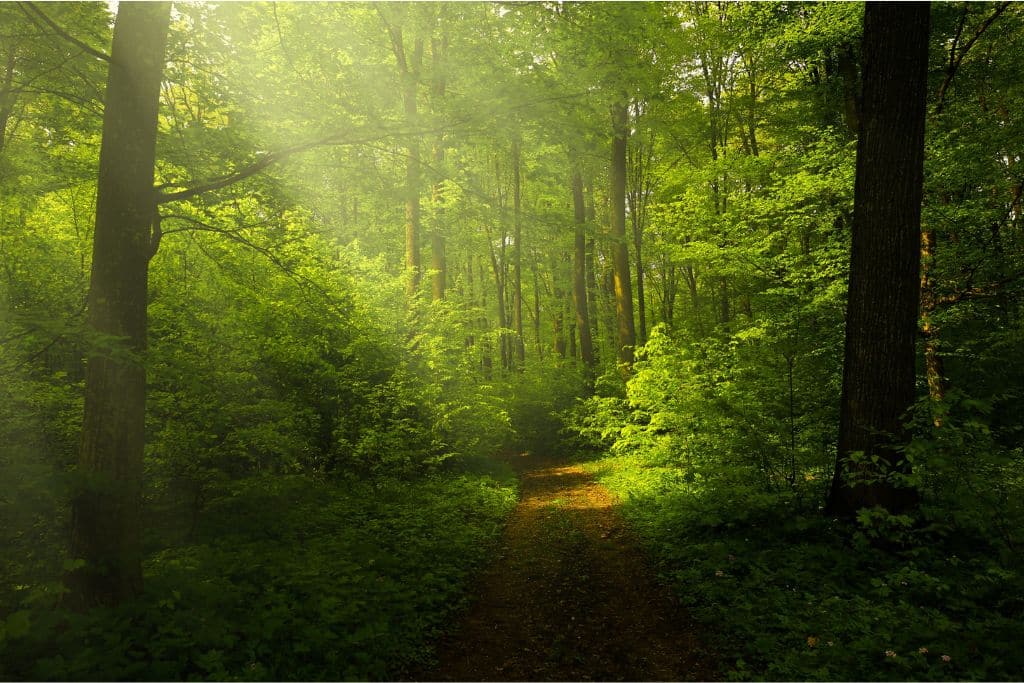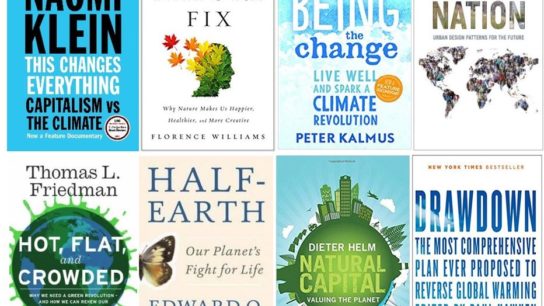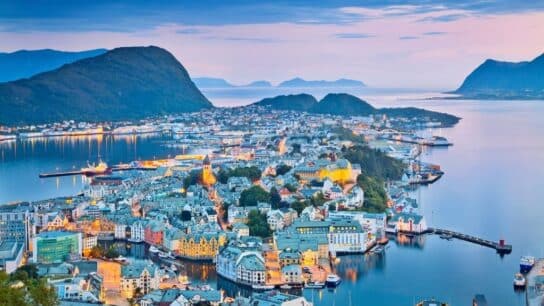The term “deep ecology” comes up regularly. It is part of the fully open debate on whether ecology should be radical or not in order to prevent climate change. However, the use of the term is often vague and does not allow for a constructive debate. In this article, we dive deep into the concept of deep ecology, from its origins to the reasons for the many criticisms that undermine this still modern-thinking theory.
—
The Foundations of Deep Ecology
Deep ecology is first of all the fruit of the reflection of an atypical character, Arne Naess. After studying in the capital of Oslo, the Norwegian philosopher decided to return to live as close as possible to nature in an isolated chalet on a mountain.
Naess was moved in 1962 by Rachel Carson’s book “Silent Spring” on the harmful effects of pesticides. Then, a philosopher of science and language, he turned to the importance of the environment and the study of Spinoza and Gandhi’s writings, both of which underlined the importance for man to remain connected to nature.
Far from the world, he will only gain worldwide notoriety years later, thanks to the 1973 article “The shallow and the deep, long‐range ecology movement. A summary”. The piece criticises “shallow ecology”, which he describes as a mainstream pro-environment approach limited to wanting to change the consequences of climate change, rather than going back to the causes behind it, mainly human activities. Deeply anthropocentric, shallow ecology would be a vain attempt to keep humans, especially those in developed countries, almighty over nature, with minimal adjustments in order to preserve life on earth.
Arne Naess offers another approach. He focuses on the concept of “deep ecology”. According to Naess, humans are only part of nature and as such cannot see their needs supersede the general environmental balance. The only way to prevent climate change is a total switch in the human way of life and a drastic reduction in population.
About ten years later, in 1984, Naess and fellow author George Sessions published a short dispatch containing the eight main fundamental values of deep ecology:
- Inherent value: All things, human and non-human, have value.
- Diversity: Richness and diversity of life forms contribute to the realisation of these values and are also values in themselves.
- Vital Needs: Humans have no right to reduce this richness and diversity except to satisfy vital needs.
- Population: The flourishing of human life and cultures is compatible with a substantial decrease in human population. The flourishing of non-human life requires such a decrease.
- Human Interference: The present human interference with the non-human world is excessive, and the situation is rapidly worsening.
- Policy Change: Policies must therefore be changed.
- Quality of Life: The ideological change is mainly that of appreciating life quality rather than adhering to an increasingly higher standard of living.
- Obligation of Action: Those who subscribe to the foregoing points have an obligation directly or indirectly to try to implement the necessary changes.
A Heavily Criticised Theory
With Spinoza, Gandhi or Carson seen as spiritual fathers and praised by millions of people for their theories and values, it is surprising to see how much deep ecology is decried today.
Early on, like any political theory, Naess’ was challenged by seemingly intelligible arguments. The current of feminist ecology has criticised it for regarding humans as being the ones responsible for climate change, without pointing out the greater responsibility of men. Social ecologists, on the other hand, have criticised the absence of acknowledgement of the responsibility of the highest social classes. Authors have also denounced a form of pantheism in deep ecology, in other words, a religious veneration of nature.
However, far from these constructive criticisms, deep ecology is mostly criticised by association with other currents of thought which claim to be based on it. Deep ecology is unfairly associated with two currents of thought close to ultra-conservative circles – “ecofascism” and “integral ecology”.
Ecofascism is a relatively new trend that has manifested itself following the 2019 attack in Christchurch, New Zealand and the shooting in El Paso, Texas. The first massacre was a terrorist attack on two mosques, where 51 people lost their lives, while the latter involved a 21-year-old man who killed 23 people and injured 22 others at a Walmart store. The two perpetrators of the attacks had justified their actions with a reasoning that the environment is in danger due to overpopulation, and non-Western populations are responsible for the situation the world find itself in.
Regardless of the horror that ecofascism represents, its connection to deep ecology makes no sense. The only attempt to link the two together, is by claiming that deep ecology is promoting radical actions. Nevertheless, far from ecofascism and even eco-terrorism, deep ecology has as one of its foundations the thought of Gandhi, a well-known believer in nonviolence. Moreover, if the “obligation of action” is part of the deep ecology’s principles, those actions are in no way necessarily violent. The nauseating association that is made between eco-fascism and deep ecology looks like an easy way to try to discredit radical heterodox thoughts.
Just as unsubtly, deep ecology is often compared to integral ecology. If this name is less dubious than the one of eco-fascism, it is nevertheless somewhat problematic. Integral ecology comes from a radical conservative background, influenced especially by Catholics. Integral ecology is notably an attempt to bring a Catholic vision of sustainable development. This is for instance what Pope Francis’s Laudato si’ encyclical attempted to do in 2015. It emphasises the importance of the relationship between man and nature, which indeed brings it closer to deep ecology, but is part of the classic vision of Catholicism according to which men are masters of creation. Deep ecology professes the equality of species and does not adhere to any monotheistic religion.
An Up-To-Date Theory to Keep In Mind When Considering Radical Ecologism
Far from easy attempts to discredit deep ecology and from necessarily subscribing to its thinking, deep ecology is a topical theory. At a time when the quest for a radicalism that does not degenerate into uncontrolled violence arises, deep ecology is rich in lessons. Its concepts, whether it be the relation to nature, the questioning of anthropocentrism or its anti-speciesism, are all avenues of reflection for a successful ecological transition.
The existence of particularly radical ecological currents, claiming to be deep ecology, should not cast a veil over this whole theory. Deep ecology is above all a family of reflection whose principles are so broad that it is destined to have many sub-currents of thoughts.
For example, a movement referring to the deep ecology is that of Les Knight who created in 1991 the Voluntary Human Extinction Movement, which promotes the end of the human race by stopping procreation. This is only a subgroup of deep ecology and cannot essentialise or discredit all of a thought claiming for a radicalism deemed necessary in order to change our system in time.
You might also like: World Population Hits 8 Billion: What Now?

















